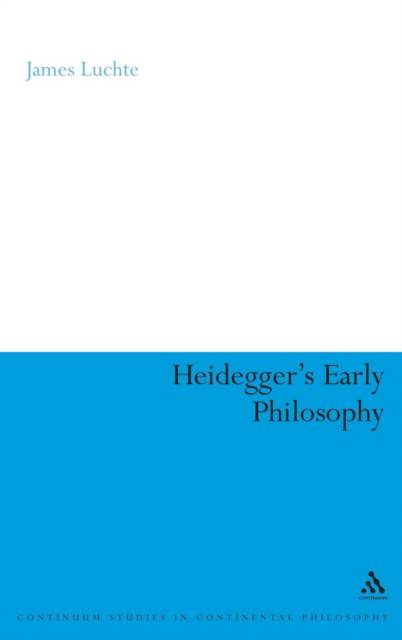
- Retrait gratuit dans votre magasin Club
- 7.000.000 titres dans notre catalogue
- Payer en toute sécurité
- Toujours un magasin près de chez vous
- Retrait gratuit dans votre magasin Club
- 7.000.0000 titres dans notre catalogue
- Payer en toute sécurité
- Toujours un magasin près de chez vous
Description
In Heidegger's Early Philosophy, James Luchte sets forth a comprehensive examination of Heidegger's phenomenology between 1924 and 1929, during which time Heidegger was largely concerned with a radical temporalization of thought. The book seeks to re-construct Heidegger's radical phenomenology through an interpretation of all his published and unpublished works of the period, including the 1920s lecture courses and his published works, Kant and the Problem of Metaphysics and his magnum opus, Being and Time. The book also explores Heidegger's relationship with other philosophers, such as Husserl, Kant and Leibniz, with respect to the question of the relationship of thought and temporality.
The book addresses a significant void in the treatment of Heidegger's early phenomenology, emphasizing the importance of Heidegger's lecture courses and other works besides Being and Time, and thereby investigates the many fragments of Heidegger's work so as to more fully comprehend the meaning and significance of the original project. James Luchte makes an extraordinary and hugely important contribution to the field of Heidegger Studies.
Spécifications
Parties prenantes
- Auteur(s) :
- Editeur:
Contenu
- Nombre de pages :
- 224
- Langue:
- Anglais
- Collection :
- Tome:
- n° 67
Caractéristiques
- EAN:
- 9781847062970
- Date de parution :
- 15-10-08
- Format:
- Livre relié
- Format numérique:
- Genaaid
- Dimensions :
- 168 mm x 235 mm
- Poids :
- 494 g

Les avis
Nous publions uniquement les avis qui respectent les conditions requises. Consultez nos conditions pour les avis.






